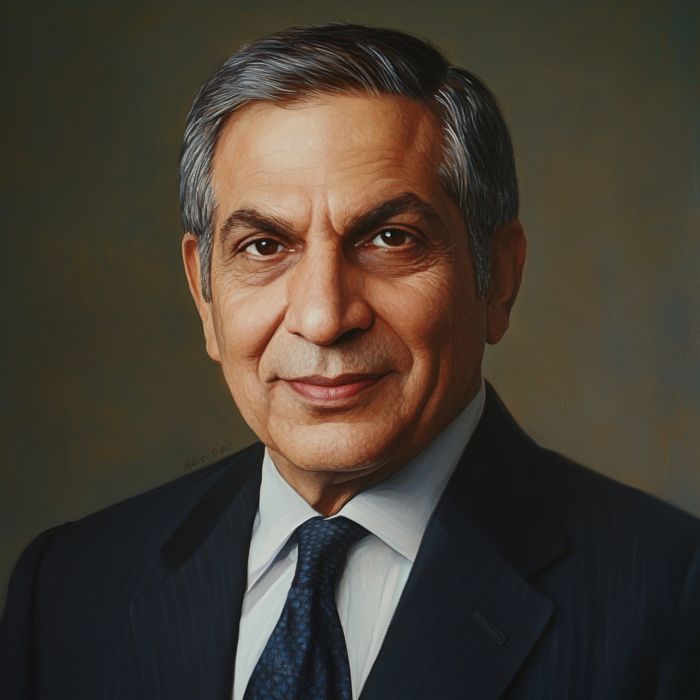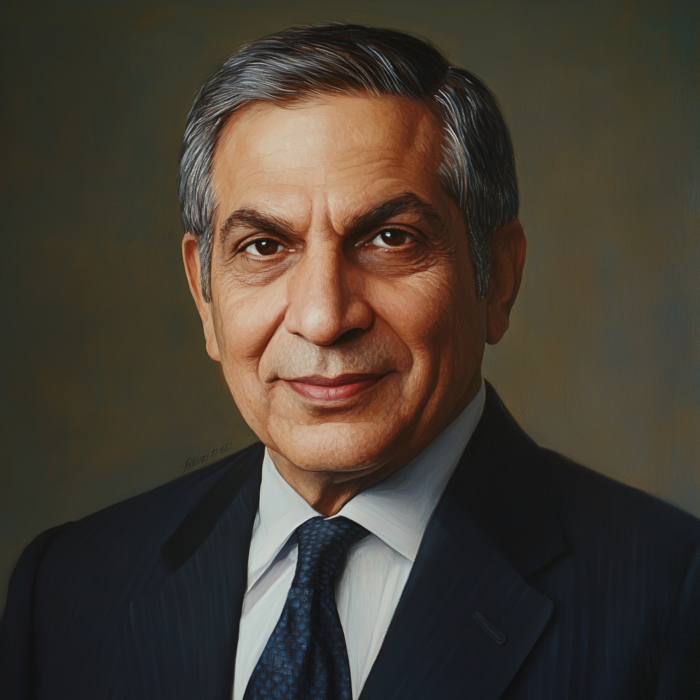


Ratan Tata is one of India's most prominent and respected industrialists, known for his leadership of Tata Group, India's largest and most diversified conglomerate. He is recognized for his visionary leadership, philanthropic efforts, and commitment to ethical business practices. Here is an overview of his life and career:
Ratan Tata was raised by his grandmother, Lady Navajbai Tata, after his parents, Naval Tata and Sooni Tata, separated when he was young. He attended the Campion School in Mumbai, followed by Cathedral and John Connon School in Mumbai and Bishop Cotton School in Shimla. He later went to the United States to complete his education.
Ratan Tata began his career in the Tata Group in 1962, initially working on the shop floor of Tata Steel in Jamshedpur. This hands-on experience gave him a deep understanding of the operations and challenges of the company. Over the years, he held various positions within the group, gaining experience in different sectors.
In 1991, Ratan Tata succeeded J.R.D. Tata as the chairman of Tata Sons, the holding company of the Tata Group. This marked the beginning of a transformative era for the group under his leadership.
Global Expansion: Ratan Tata is credited with transforming the Tata Group from a predominantly India-centric conglomerate into a global powerhouse. He spearheaded several high-profile acquisitions, including the purchase of Tetley Tea (UK) in 2000, Corus Steel (UK) in 2007, and Jaguar Land Rover (UK) in 2008. These acquisitions significantly enhanced Tata Group's international presence.
Tata Nano: One of Ratan Tata's most ambitious projects was the development of the Tata Nano, launched in 2008. Dubbed the "world's cheapest car," the Nano was designed to provide affordable transportation to millions of Indians. Although it didn't achieve commercial success as expected, the project demonstrated Tata's commitment to innovation and addressing social needs.
Philanthropy: Ratan Tata has been deeply involved in philanthropic activities, particularly through the Tata Trusts, which control a substantial portion of Tata Sons' equity. Under his leadership, the Trusts have contributed to various causes, including education, healthcare, rural development, and the arts. He has personally donated to various charitable causes as well.
Ethical Leadership: Ratan Tata is renowned for his commitment to ethical business practices. He has always emphasized the importance of corporate social responsibility and has been a vocal advocate for integrity and transparency in business.
Ratan Tata retired as the chairman of Tata Sons in 2012, although he remains active in various roles within the group and continues to influence its direction. He was succeeded by Cyrus Mistry, but due to internal conflicts, Mistry was removed in 2016, and Ratan Tata temporarily returned as interim chairman until the appointment of Natarajan Chandrasekaran in 2017.
Ratan Tata's legacy extends beyond his business achievements. He is admired for his humility, simplicity, and strong values. He has received numerous honors and awards, including the Padma Bhushan (2000) and Padma Vibhushan (2008), two of India's highest civilian awards.
Ratan Tata is known for his private nature and has never married. He has a deep passion for cars, aviation, and architecture, and he continues to be involved in various social causes, mentoring young entrepreneurs and investing in startups.
Even after retirement, Ratan Tata remains a significant figure in the business world. He serves on the boards of several major companies and continues to guide the Tata Group's philanthropic efforts. His influence on Indian industry and society is profound, and he is often looked up to as a role model for ethical leadership in business.
Ratan Tata's vision, leadership, and commitment to social responsibility have left an indelible mark on India and the world, making him one of the most respected figures in global business.

We use cookies
We use cookies and other tracking technologies to improve your browsing experience on our website, to show you personalized content and targeted ads, to analyze our website traffic, and to understand where our visitors are coming from. Privacy Policy.